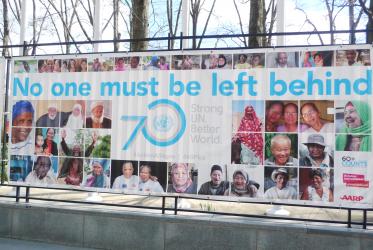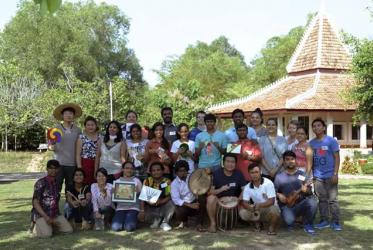Displaying 41 - 58 of 58
31 March 2016
Religious leaders as agents of peace in the Americas
02 March 2016
Symposium focuses on religion, violence, extremism
04 February 2016
WCC Executive Committee works toward a future of peace and justice
19 November 2015
Indigenous faith leaders reflect on resilience and climate change
23 September 2014
Assembly renews churches’ commitment towards justice and peace
08 November 2013
Concern and solidarity for Bangladesh
17 May 2013











